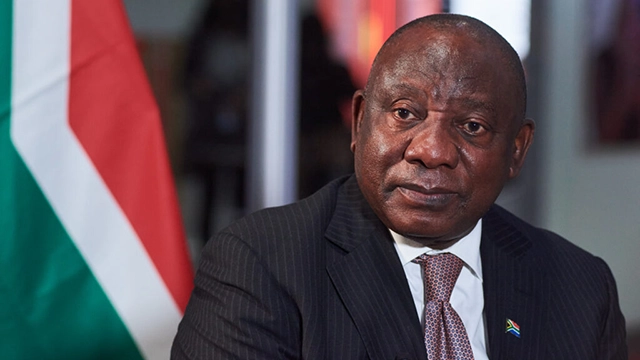
[Opinion] Ramaphosa’s smallanyana Phala Phala skeleton just won’t go away
One precarious day almost exactly a year ago, we were expecting Cyril Ramaphosa to resign over the Phala Phala scandal at any moment.
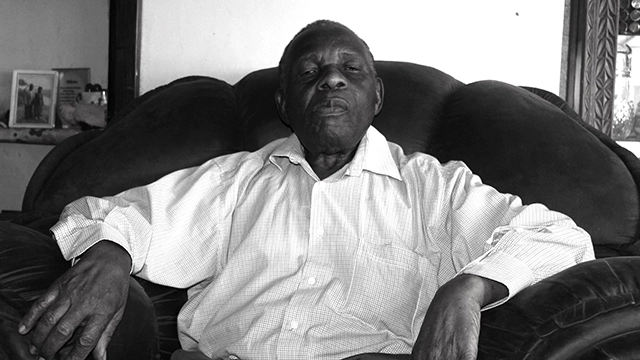
[Opinion] John Hlatywayo: remembering a great Zimbabwean artist who was woefully neglected by history
John Hlatywayo, who has died at 96, was a great painter, sculptor and mentor. However he is woefully neglected in the art history of Zimbabwe and southern Africa.
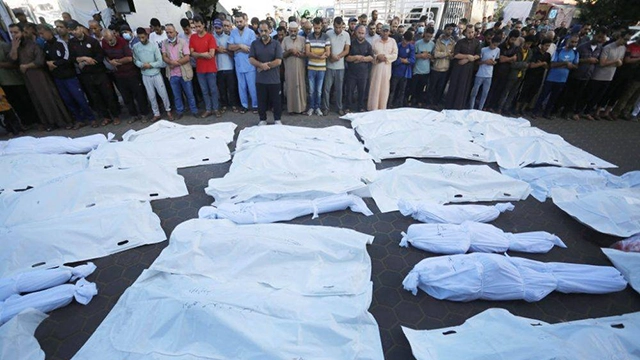
Finding words that lead to peace in Palestine and Israel - opinion
The war that has erupted in Israel and Palestine since 7 October has caught many of us off guard with the ferocity with which both sides are trying to destroy each other and its utter disregard for civilian lives. South African news coverage of Israel and Hamas highlights how nothing about the conflict is straightforward and what a difficult line we need to tread if we are to work for peace.
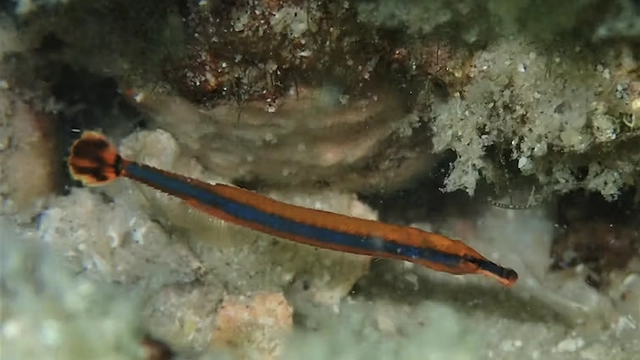
Tiny and mysterious: research sheds light on sub-Saharan Africa’s seahorses, pipefish and pipehorses
Seahorses are considered fabled creatures by many; something that only exists in old mythical tales of the ocean. But these curious animals really exist – and they’re not the only members of the Syngnathidae family of fishes. Other syngnathids are pipefish, pygmy pipehorses and seadragons, and all are enchanting.
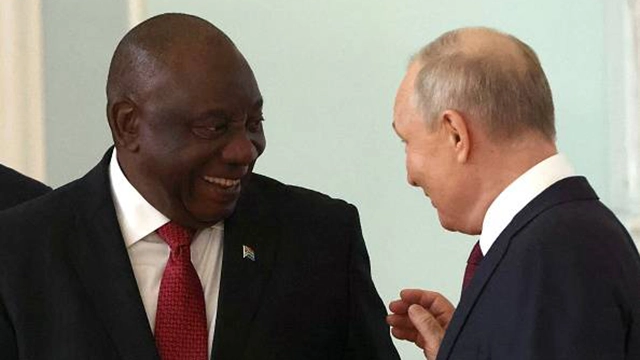
Ramaphosa: Dodging the bullets of Phala Phala and Putin - opinion
President Cyril Ramaphosa has been navigating turbulent waters for the past year but always seems to come through in the clear. Lately, he has dodged past the rugged rocks of Phala Phala and narrowly missed the cataclysmic vortex of Russia’s President Vladimir Putin.
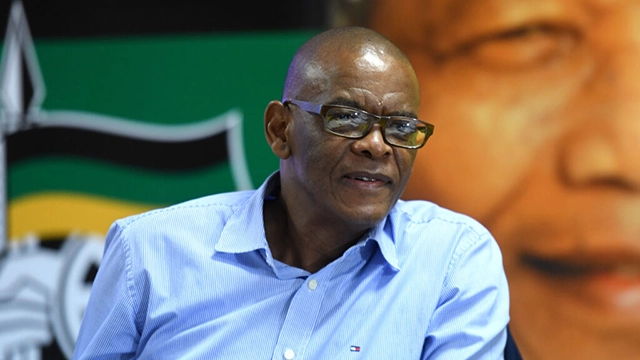
Magashule vs Mbalula: Icons of South Africa’s leadership malaise - opinion
How much significance should we read into Ace Magashule’s expulsion from the ANC, and will it have ripple effects on coalition possibilities for the 2024 elections? A look at June’s news coverage of the ruling party raises these questions, and reminds us of the deep moral gutter South African politics has descended into.
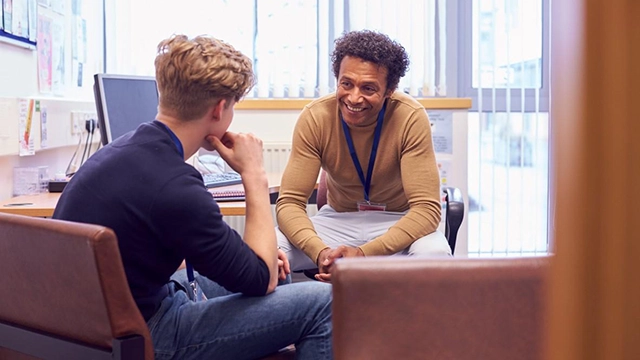
Five characteristics of effective supervisor training - Sioux McKenna, Puleng Motshoane
What constitutes effective training to ensure research supervisors are well equipped to work with doctoral students? Sioux McKenna and Puleng Motshoane share advice based on their research in South Africa.
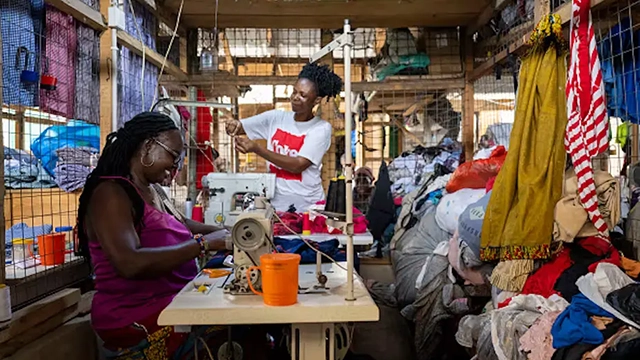
Ghana’s e-levy is unfair to the poor and misses its revenue target: a lesson in mobile money tax design
In May 2022, the government in Ghana introduced a deeply unpopular tax on mobile money transactions, known as the e-levy. When it was introduced, the levy was structured as a 1.5% charge on all electronic and mobile money transactions over 100 cedis per day.

ChatGPT is the push higher education needs to rethink assessment
The COVID-19 pandemic was a shock to higher education systems everywhere. But while some changes, like moving lectures online, were relatively easy to make, assessment posed a much bigger challenge. Assessment can take many forms, from essays to exams to experiments and more.
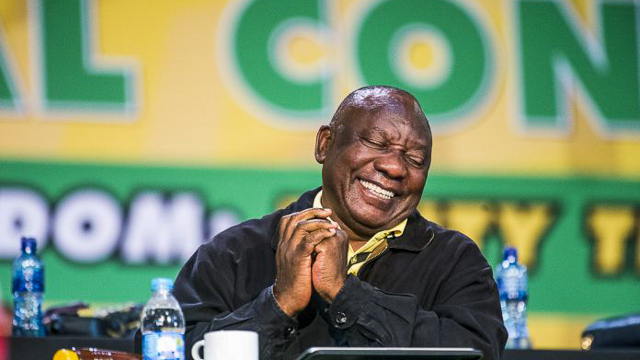
Ramaphosa scraped through 2022, but what will it take for South Africa to win in 2023?
If there was one person in South Africa all eyes were watching in 2022, it was Cyril Ramaphosa. His vertiginous swing in fortunes from almost resigning at the beginning of December to winning a second term as ANC president less than three weeks later left many of us with our hearts in our mouths.
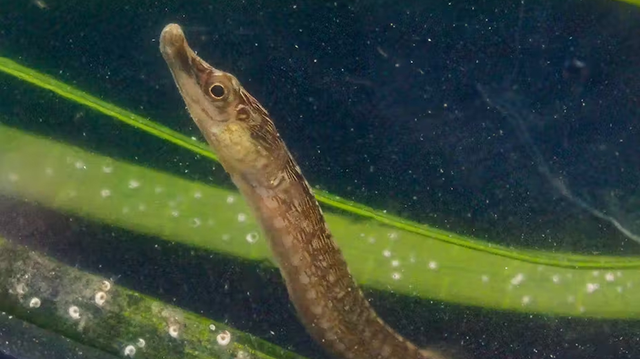
DNA in the water shows South African scientists where to find a rare pipefish
Keeping track of the world’s wildlife populations is fundamental to conservation efforts in the face of the continued deterioration of global biodiversity.

Afrobeats in 2022: global mobility, election songs, placemaking albums – and Tems
More than Nollywood films, Afrobeats is arguably Nigeria’s strongest cultural export since the turn of the millennium. It is a hugely dynamic music category that incorporates a range of moods, languages, styles, and existing genres. To understand its impact, a cultural connoisseur has equated good Afrobeats music with well-made, smoky Nigerian party jollof rice!
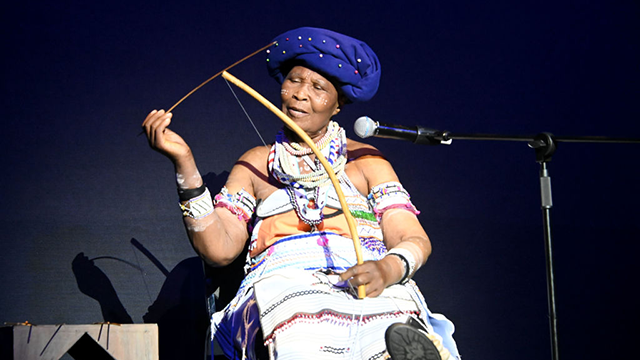
Madosini, a South African national treasure whose music kept a rich history alive
Renowned African musician, songwriter and storyteller Latozi “Madosini” Mphahleni passed away late in 2022. The cultural and indigenous music activist, who laughed as often as she played, was loved by everyone she met. She has left behind a rich legacy of Xhosa music, heritage and history. She also taught and nurtured a new generation of bow players, reinvigorating an art that was dying.
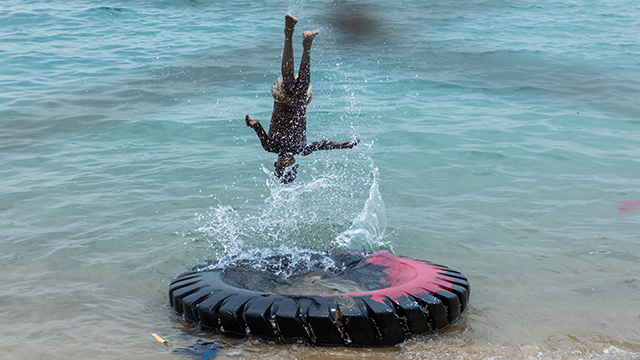
Digital storytelling can be a powerful tool for water researchers
Storytelling and science may, at first glance, seem like strange bedfellows. Scientists usually share their research through academic journals and books or at academic conferences.
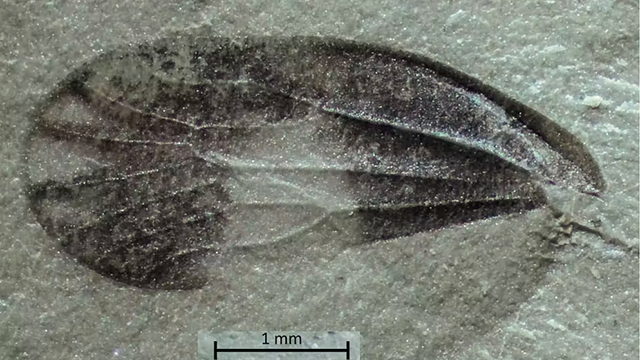
Exquisite new fossils from South Africa offer a glimpse into a thriving ecosystem 266 million years ago
South Africa is famous for its amazingly rich and diverse fossil record. The country’s rocks document more than 3.5 billion years of life on Earth: ancient forms of bacterial life, the emergence of life onto land, the evolution of seed-producing plants, reptiles, dinosaurs and mammals – and humanity.
_copy.webp)
Crime is lower when cities are greener: evidence from South Africa supports the link
South Africa’s population is urbanising at a rapid pace. The sheer rate of change poses challenges to planning for sustainable and liveable cities.
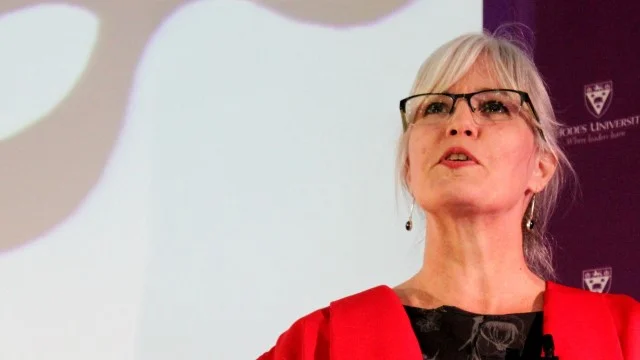
University rankings are an unscientific and socially damaging billion-dollar game
Many universities expend vast sums of money to improve their place on the rankings. And they make strategic decisions that favour rankings placement over transformation.
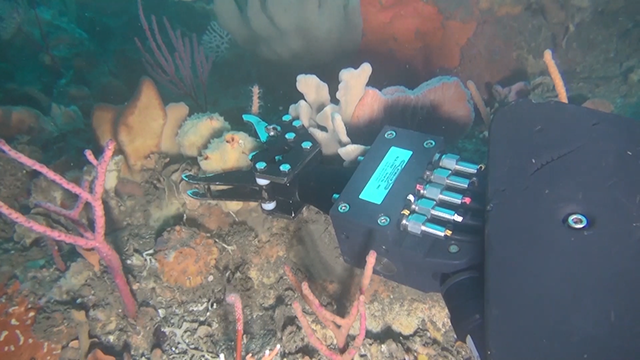
Searching the natural world for a solution to deadly drug-resistant bacteria
Drug-resistant infections caused by the misuse of antibiotic treatments killed over 1.2 million people worldwide in 2019. Without global action, this silent pandemic is projected to lead to 10 million deaths every year by 2050. People living in low-to-middle-income countries with limited access to new and effective antibiotics will be most affected.

The moral outrage about plagiarism belies our educative failure
The police-catch-punish approach neglects to address plagiarists’ misunderstanding of what higher education is all about, says Sioux McKenna.

A Durban theatre company is drawing attention to the ocean through powerful storytelling
Durban theatre company, Empatheatre, performed its play ‘Lalela Ulwandle’ at COP27 in Sharm el-Sheikh on 14 November. The intention of the cast and crew was to place an ‘acupuncture point’ within COP27 decision-making and spark deeper consideration of grassroots coastal realities of the climate crisis.
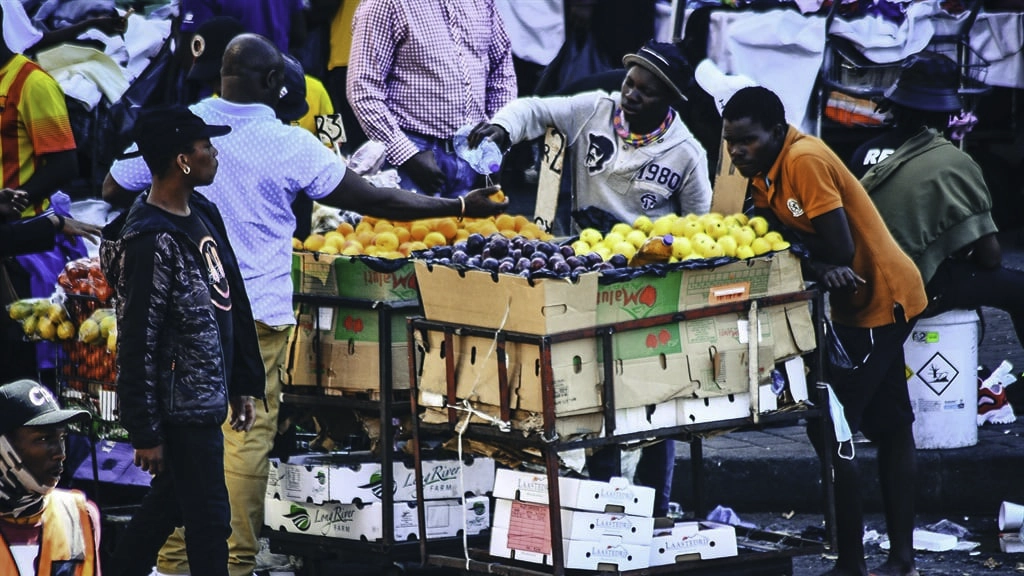
How the special Covid grant helped informal traders to stay afloat
No matter the circumstances and challenges, informal traders were able to parlay the Covid-19 Social Relief of Distress (SRD) grant into supporting and even in some cases, growing their businesses, write Senzelwe Mthembu, Sophie Plagerson, Laura Alfers, Mike Rogan and Lauren Graham.
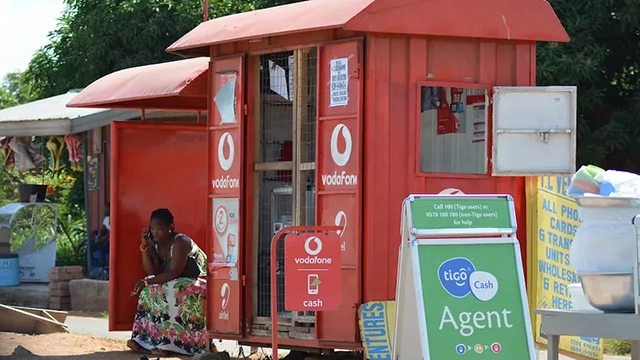
New data on the e-levy in Ghana: unpopular tax on mobile money transfers is hitting the poor hardest
Ghana’s introduction of a a 1.5% tax on mobile money transactions in May 2022 has been watched closely by policymakers across Africa. The proponents of the electronic transaction levy (e-levy) argue that taxes on mobile money — commonly referred to in Ghana as MoMo — present an opportunity for cash-strapped governments to raise funds in the complex post-pandemic context.
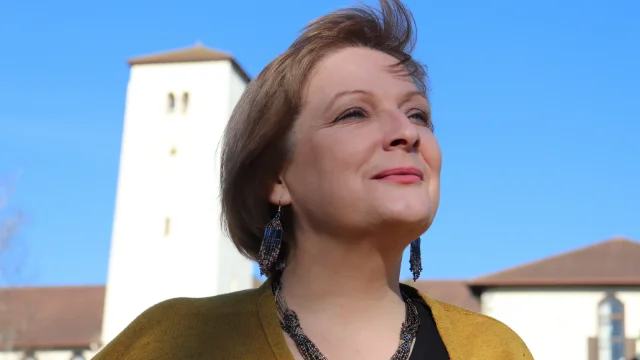
International education is adapting to global uncertainty
In an ambitious closing plenary of the 24th annual International Education Association of South Africa (IEASA) conference entitled ‘Around the globe in 60 minutes’, leaders from eight member associations of the Network of International Education Associations (NIEA) reflected on how the current global, regional and national geopolitical and economic contexts were impacting on higher education and the internationalisation of higher education.

Backlash against Higher Education Department’s draft university policy misses the point
The draft university policy is not about the public sector at all. Instead it sets out the future designations that will be available in the private higher education sector. It attends to the demand by private institutions that they too should be able to call themselves ‘universities’.

Universities shouldn’t use software to monitor online exams: here’s why
Proctoring software monitors a student’s computer or phone while they write exams. These programs have been around for some time but became ubiquitous during online learning in the pandemic.

Racism in South Africa: why the ANC has failed to dismantle patterns of white privilege
One of the sources of social discontent in post-apartheid South Africa is the legacy of white racism. This toxic legacy is evident in racialised poverty and inequality.
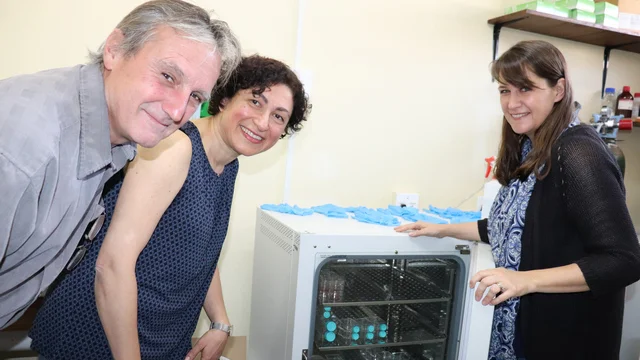
What it would take to set up an African drug discovery ecosystem
Africa has great potential for drug discovery. The continent has natural resources, indigenous knowledge and human capacity. And it has the need: it bears more than 20% of the global disease burden. There are many internationally recognised African scientists undertaking cutting-edge research. But a lack of resources makes it difficult to conduct world-class science. A team of African biochemists, cell biologists and bioinformaticians shares some thoughts on what it would take to establish an Africa-wide drug discovery ecosystem. The authors are the key members of the COVIDRUG-AFRICA Consortium – the consortium for rapid COVID-19 drug development in Africa.

UK work visa for elite graduates is exclusive and based on flawed assumptions
The UK government’s announcement of a new work visa option aimed at attracting top graduates has elicited some backlash because the list of eligible institutions features no universities from Africa, Latin America or South Asia. The Conversation Africa’s Nontobeko Mtshali asked Orla Quinlan, Director of Internationalisation at Rhodes University in South Africa, to share her thoughts on the implications such visa programmes have for international integration and intercultural efforts in higher education.
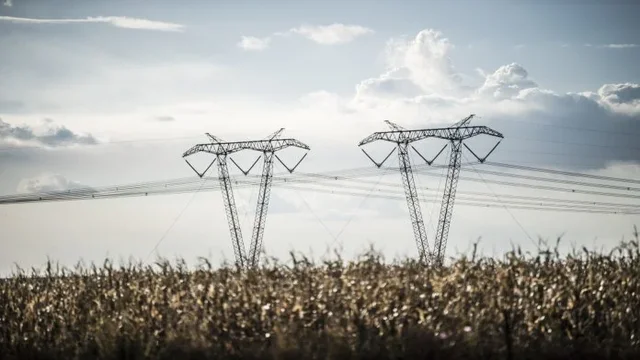
Eskom caught in a web of dysfunctionality
"Eskom” must be one of the most hated names in South Africa, a reputation that has only been entrenched after another run of load-shedding in May and indications of more to come as winter deepens.

How can internationalisation regain momentum in South Africa?
It is mandatory for each South African institution to develop its own policy and plan on internationalisation two years after the Policy Framework for Internationalisation of Higher Education in South Africa was published on 6 November 2020, and at a time when international student numbers are decreasing.
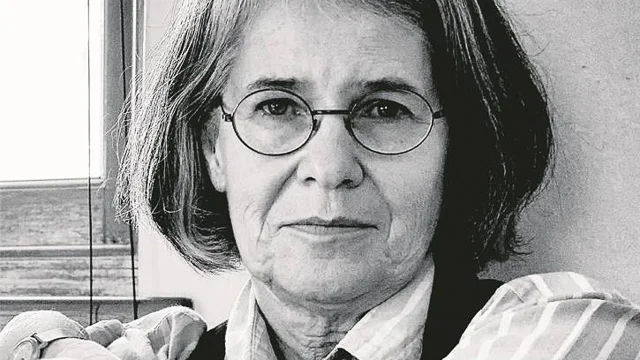
Antjie Krog and the role of the poet in South Africa’s public life
When South African writer Antjie Krog was just 17, she wrote a poem for her school magazine which was shocking enough to upset Kroonstad High’s parents. The furore caught the attention of the Sunday newspapers, who descended on the town in the Free State province.
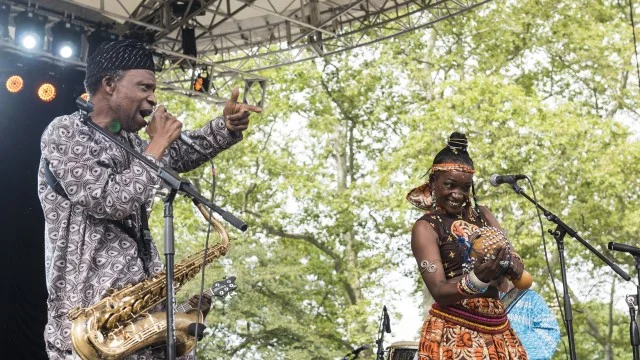
The legacy of Nigerian music star Orlando Julius must not be overlooked
If there is one musician as commonly associated as Fela Anikulapo-Kuti with the West African musical movements Afrobeat and Afrobeats (never mind Afro-Blues and Afro-Soul), this is the preserve of Orlando Julius Ekemode. Given Fela’s immense stature it would seem impossible to speak of another musician from whom he gained musical direction. Yet, one must, in the case of his fellow multi-instrumentalist Orlando Julius.
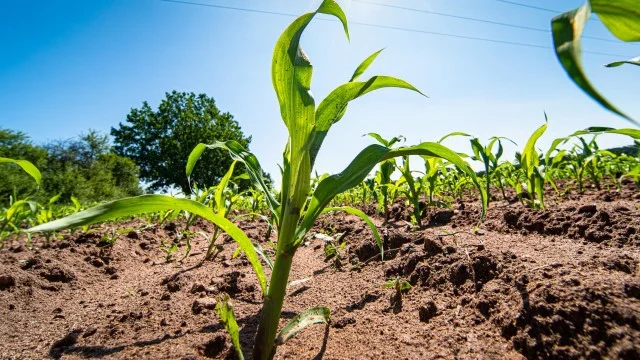
Rising atmospheric CO₂ may benefit maize crops: first experiment in African conditions
Global maize production is worth billions of dollars annually and is key to global food security because it’s a staple food for billions of people. Most maize production relies on natural rainfall, making it vulnerable to changing rainfall patterns.
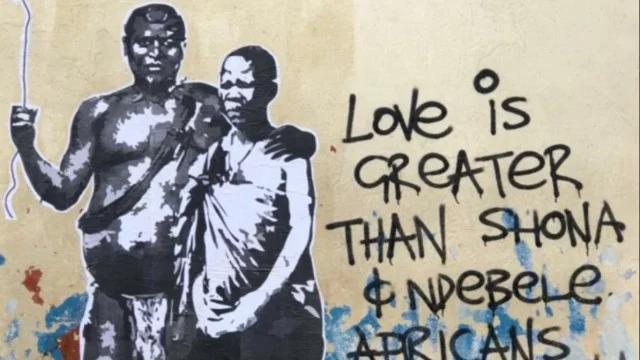
A street art mural in Zimbabwe exposes a divided society
The Shona and the Ndebele are Zimbabwe’s two most dominant ethnic groups. Explaining the ever-present tension between them, historian Sabelo J. Ndlovu-Gatsheni points to the abuse of the post-colonial state by the ruling Shona-dominated government “in its drive to destroy Ndebele particularism”. He explains, “This sets in motion the current Matabeleland politics of alienation, resentment and grievance.”
.webp)
Ramaphosa: Reminded, lobbied and plotted against
President Cyril Ramaphosa has had a busy month, and the list of things that have occupied his mind includes much more than high-profile matters like ending the National State of Disaster.

From Nigeria to the world: Afrobeats is having a global moment
Another Grammy Awards season and there is a growing list of African nominees. For African music enthusiasts, it is heartwarming that recognition is being accorded to practitioners in the Afrobeats space.
.webp)
Coalition negotiations: A sidelined ANC, a surprised DA and a demanding EFF
South Africa’s coalition negotiations after the November 2021 election were full of unexpected plot twists. November’s news reporting reveals clear, almost cartoonish characterisations of our largest three parties emerging from a backdrop of extremely complex negotiations and a soap-opera-worthy web of love-hate relationships.
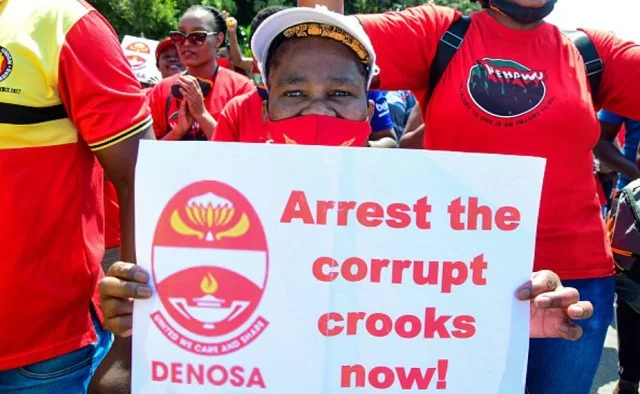
South Africa’s anti-corruption busters: short-changed on funding and political commitment
The word corruption has its roots in the Latin adjective corruptus which refers to something that is spoiled, corrupted or perverted. In South Africa, evidence of the perversion of public funds abounds. In his 2021 Medium-Term Budget Policy Statement the country’s finance minister Enoch Godongwana warned that rampant corruption was a persistent issue draining public finances.
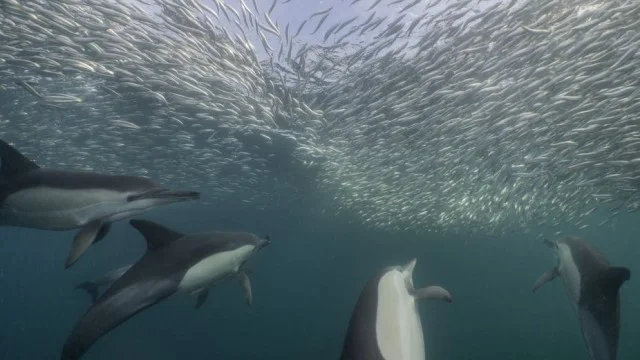
South Africa’s massive ‘sardine run’ leads fish into an ecological trap
One of the world’s most spectacular marine migrations is the KwaZulu-Natal sardine run. The so-called “greatest shoal on Earth” takes place during the southern hemisphere’s winter. It involves the movement of tens to hundreds of millions of sardines from the warm-temperate waters of South Africa’s south coast to the subtropical waters of the east coast, over a thousand kilometres away.

South Africa’s universities are adopting an international lens: why it matters
South Africa’s Department of Higher Education and Training released a policy framework in 2020 to enhance the sector’s effort towards internationalisation. The Conversation’s Nontobeko Mtshali asked Orla Quinlan to share her insights.

South African universities have taken to online teaching: but it can’t be permanent
The uptake of educational technology in South Africa’s higher education sector has been highly uneven and very slow. Before the pandemic, most courses offered in South African universities had some form of Learning Management System presence. Students could access course guides and readings, upload their assignments, and possibly communicate with their lecturer and peers via forums. But beyond that, many academics seemed to resist making use of the technology, even though it could allow for greater engagement and interactive learning.
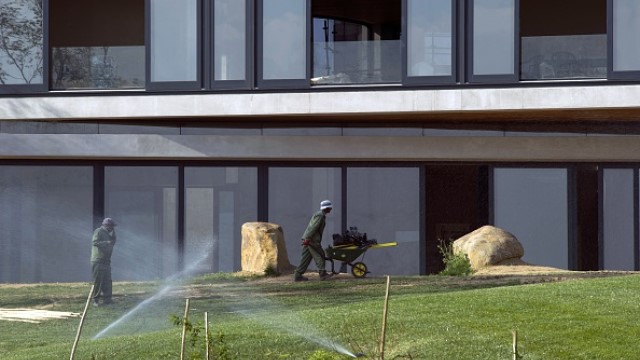
Household gardeners in South Africa: a survivalist life with little protection
The informal sector makes significant contributions to the national economies of most global South countries. In South Africa it constitutes 15% to 30% of all employment.
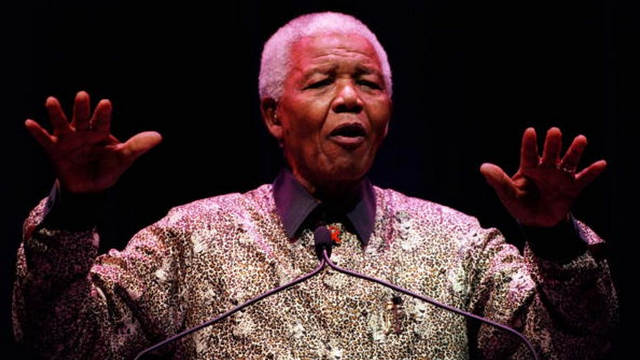
South Africa has failed to champion human rights in the world. But that’s changing
The story of democratic South Africa and its approach to human rights in the rest of the world is a tale of woe. For two-and-a-half decades, its foreign policy mostly failed to defend internationally – and quite often contradicted – the human rights principles contained in its constitution.
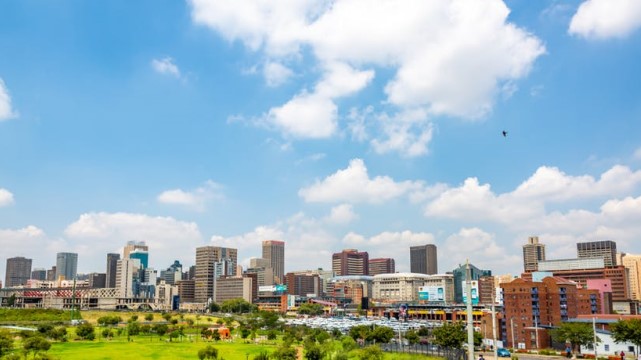
Colonial legacies shape urban nature: why this should change
Being in nature has benefits for people, as studies have shown. There’s ample evidence that experiences of nature have positive physical and psychological outcomes. But these insights have largely come from the Global North. There’s very little research on how urban communities in the Global South experience or view urban nature.

The South African play that’s tackling the scourge of the street drug whoonga
The drug whoonga has plagued South African communities for at least a decade, yet only gained significant public attention when it appeared more visibly in the inner-city and surrounding suburbs of Durban, the major city in the country’s KwaZulu-Natal province.

South Africa’s draft procurement bill falls short of what’s required to fight corruption
Public procurement is the single largest corruption risk, particularly in developing countries. Transparency International estimates that governments in low- and middle-income countries spend about 50% of public funds buying goods and services from the private sector. This compares with just 30% in high-income countries.

South African high court prohibits Muslim call to prayer. Why it got it wrong
The High Court in Durban, the port city in KwaZulu-Natal on the east coast of South Africa, has granted an interdict against a mosque, stopping its call to prayer (the athaan or adhan) because it can be heard from a neighbour’s house across the street.

Paying commission to academics reduces the value of research
Many universities around the world pay academics to publish their research. Our recent study in South Africa, though, suggests they should be cautious of such practices.

University rankings don’t measure what matters
International rankings of universities are big business and big news. These systems order universities on the basis of a variety of criteria such as student to staff ratio, income from industry, and reputation as captured through public surveys.
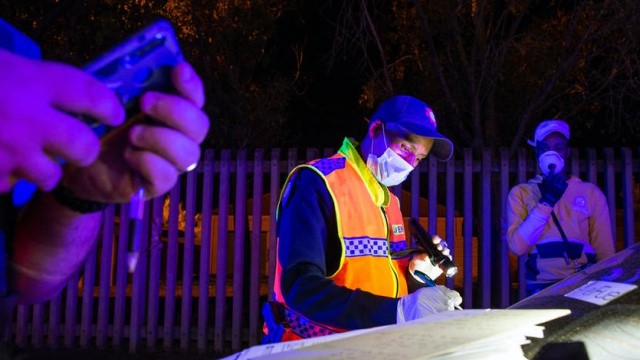
South African cops need linguistic training – urgently
If you have been the victim of a crime, one of the first interactions you’ll have with police is when an officer takes your sworn statement. Language is key to this process: you tell an officer your story, and they record it, usually writing it by hand.
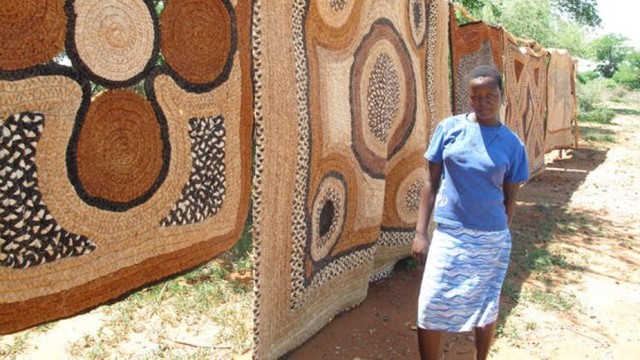
Why the world needs to ensure wild species are used sustainably
The COVID-19 pandemic has led to a worldwide crisis of food insecurity and unemployment. The International Monetary Fund (IMF) warns of rising hunger and poverty.
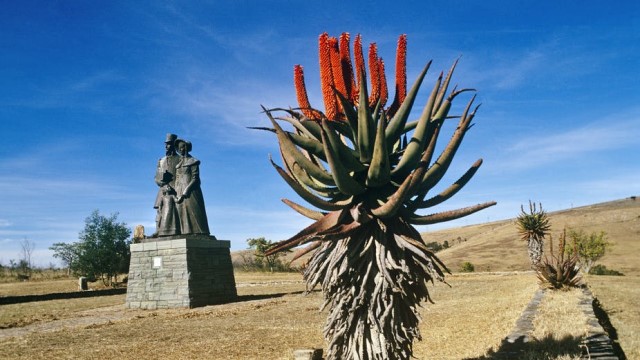
The arrival of British settlers 200 years ago continues to cast a shadow over South Africa
Two hundred years ago 5,000 people from Britain were settled in the south eastern part of South Africa in an area around present-day Makhanda and Port Alfred, then called the ‘Zuurveld’, by the British colonial authorities. To some South Africans (and particularly to many of their descendants) they are heroised as having brought development and ‘civilization’ to the area.
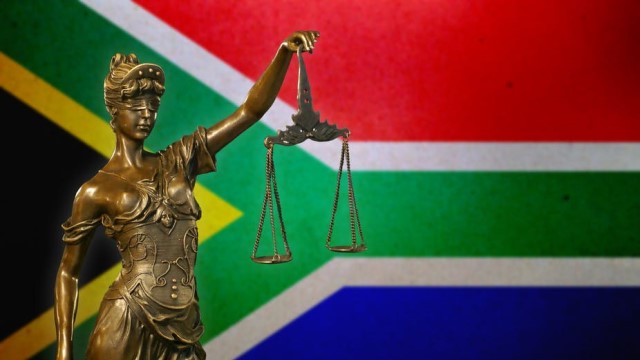
Why using just one language in South Africa’s courts is a problem
Language is a crucial element of any criminal justice system. Forensic linguist David Wright has written that people find themselves in the judicial system’s linguistic webs at every step of the legal process.
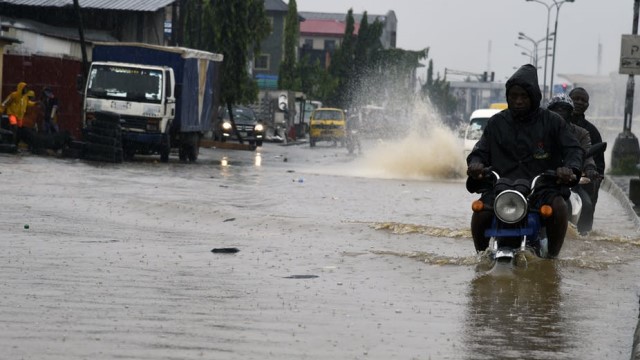
Lagos is getting less rain, but more heavy storms. What it can do to prepare.
Lagos State can expect to experience 270 days of rainfall in 2020. Many Lagosians who suffered from the 2012 and 2017 devastating flooding are wondering whether this is usual or not. Nelson Odume unpacks the issues.
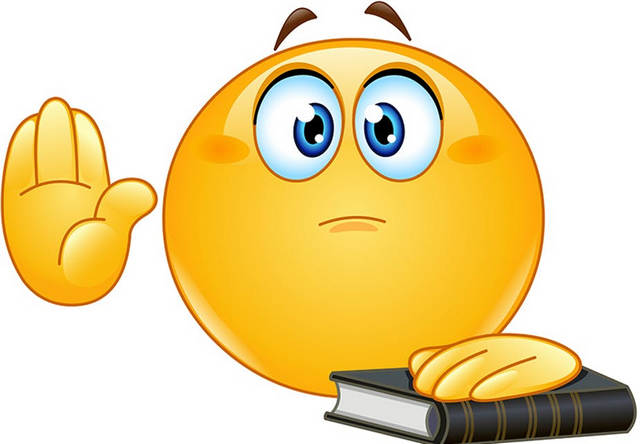
Forensic linguists explore how emojis can be used as evidence in court
Emojis have become ubiquitous in text communication – messages are peppered with smiley faces, hearts and other graphic icons. They were first drawn by graphic designer Shigetaka Kurita, and generated by a Japanese communications firm called NTT DoCoMo in the late 1990s. Now they’re everywhere.
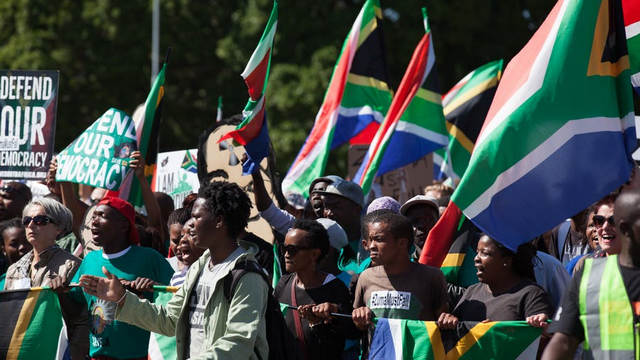
Corruption in South Africa: echoes of leaders who plundered their countries
One of the shameful achievements of the African National Congress (ANC) in its 25 years of governing post-apartheid South Africa is that it’s living up to the political stereotype of what is wrong with post-colonial Africa – unethical and corrupt African leaders who exercise power through patronage.

How international trade can unlock the potential of the cultural economy in developing countries
There is growing interest in the creative economy in emerging markets in terms of its impact on employment and economic growth, as well as social and cultural impacts.

We are using computer models to fight drug resistance
The infectious disease burden in Africa is very high, particularly for tuberculosis (TB), malaria and HIV/AIDS. In 2018, nearly a quarter (24%) of TB cases in the world were in Africa. The region accounted for 93% of malaria cases. The continent also bears the brunt of the HIV epidemic: 20.6 million of the 37.9 million people living with HIV are in eastern and southern Africa.

South Africa takes steps to assure the quality of its doctorates
Around the world there has been a massive increase in demand for doctoral education. This mostly stems from the idea that the “knowledge economy” requires high-level skills.

SA government needs private-sector assistance
WHEN governments run out of money, the consequences are usually very painful. To reduce spending to what is affordable

Tax and spending: Focus needs to fall on higher growth for state to meet ambitious goal
THE 2015-16 budget demonstrates the government’s determination to preserve SA’s hard-won
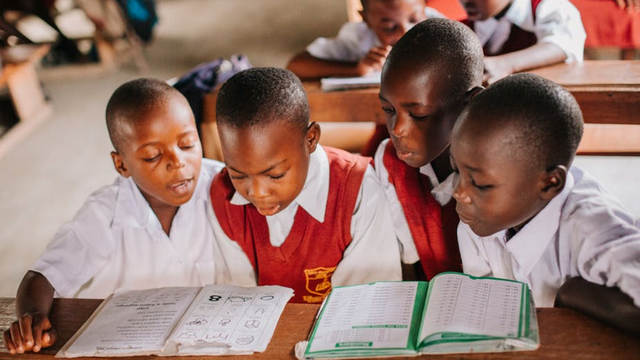
South African teachers switch languages in class: why policy should follow
If you step into a classroom in South Africa’s Limpopo province during a lesson, you’re very likely to hear the teacher speaking more than one language. She might begin a sentence in English, and then switch to Sepedi – the African language most commonly spoken as a mother tongue in the province.
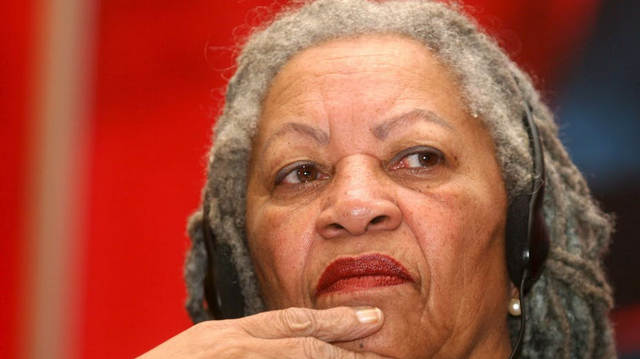
How Toni Morrison’s legacy plays out in South Africa’s universities
I first encountered Toni Morrison during my undergraduate years at Rhodes University in South Africa where her Pulitzer Prize-winning novel, Beloved (1987), was taught as part of an American Literature course.
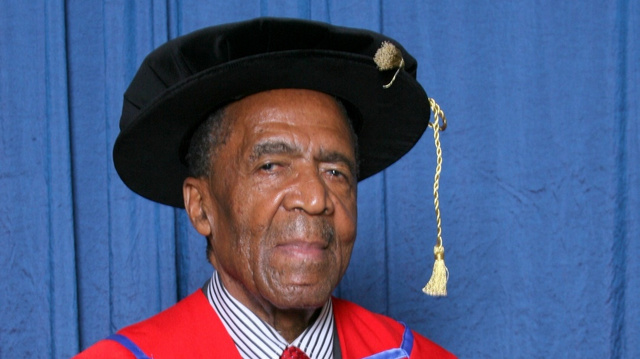
David Koloane fought for the right to define himself – and his art
Dr David Nthubu Koloane, who was born in South Africa in 1938, was an extraordinary pioneer in the visual arts who fiercely defied any form of categorisation.
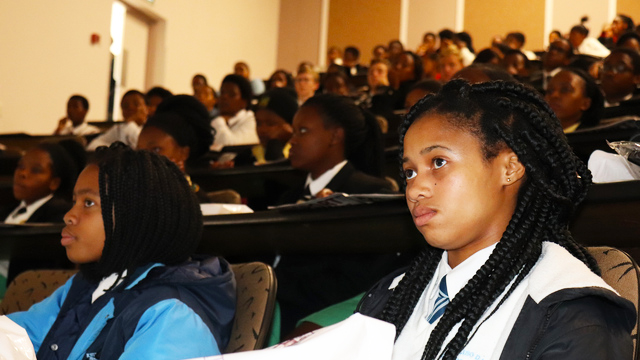
Old IQ tests not good for our kids, say experts
Educational psychologists described the widely used IQ test, Senior South African Individual Scales-Revised (SSAIS-R), as obsolete and not relevant to children growing up in the 21st century.
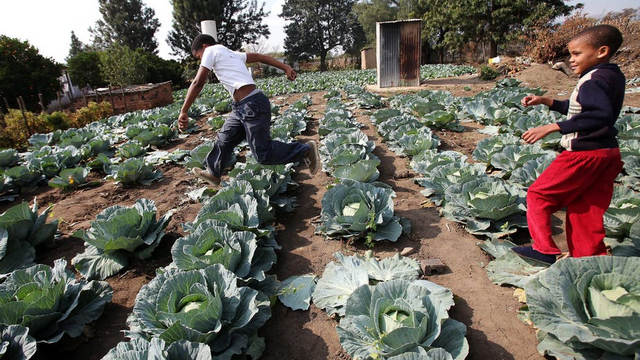
Smallholder crop farming is on the decline in South Africa. Why it matters.
Over half a million households in South Africa’s former homelands disengaged from farming between 2011 and 2016, according to Statistics South Africa. This represents a loss of one in five crop farming households.

How South Africa’s universities are making more students multilingual
South Africa is a multilingual, multicultural space. As is the case for many other countries in Africa, it has a number of official languages – 11.

Arts and culture were given money in South Africa’s budget. Why it matters.
Analysts came to a range of conclusions about the budget speech delivered recently by South Africa’s Finance Minister Tito Mboweni. But few paid attention to his comments on arts and culture. He made a commitment that National Treasury will identify funds to support a new national theatre and museum, among other initiatives.
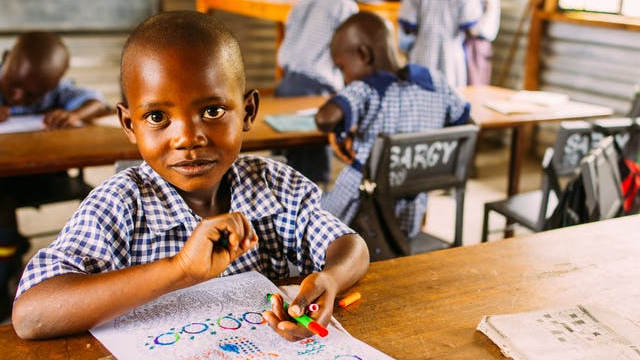
Why embracing indigenous languages could have major benefits for Kenya
Kenya is a multilingual country with over 42 different indigenous languages. In addition, foreign languages are used by minorities in major towns and in some learning institutions. The most dominant foreign language is English which is an official language alongside Kiswahili.
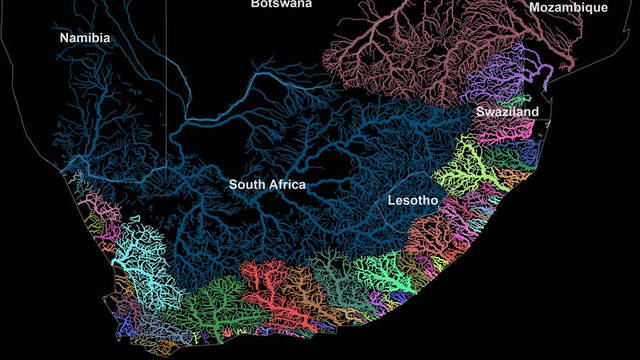
What we learned when our map of southern Africa’s rivers went viral
Can you name the river closest to where you live? Have you ever seen that river on a map? How would you react if you saw that river, and others near you, in a map unlike others you have seen before?

South African research output has risen, but caution must temper celebration
Each year, Nature, a research output database, publishes its index of high-quality research outputs across a range of journals within the natural sciences. Topics range from climate change to human biology. The data on the index represent output by institution, by country and by extent of collaboration.
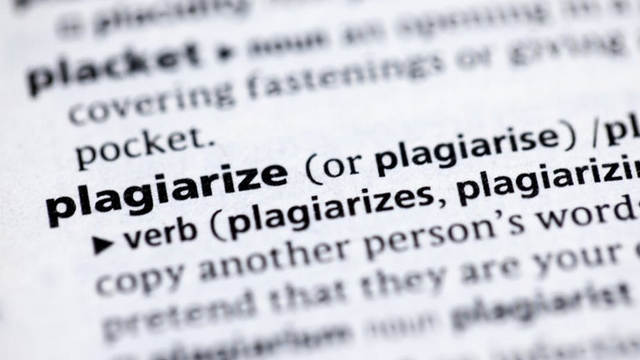
Universities must stop relying on software to deal with plagiarism
Educational software – whether it’s a teaching aid or a program designed to help teachers with administration – is big business. The recent multi-billion dollar acquisition of Turnitin, a program that is used around the world to flag possible evidence of plagiarism, is further proof of this. But does this application mean that universities are actually dealing with plagiarism?